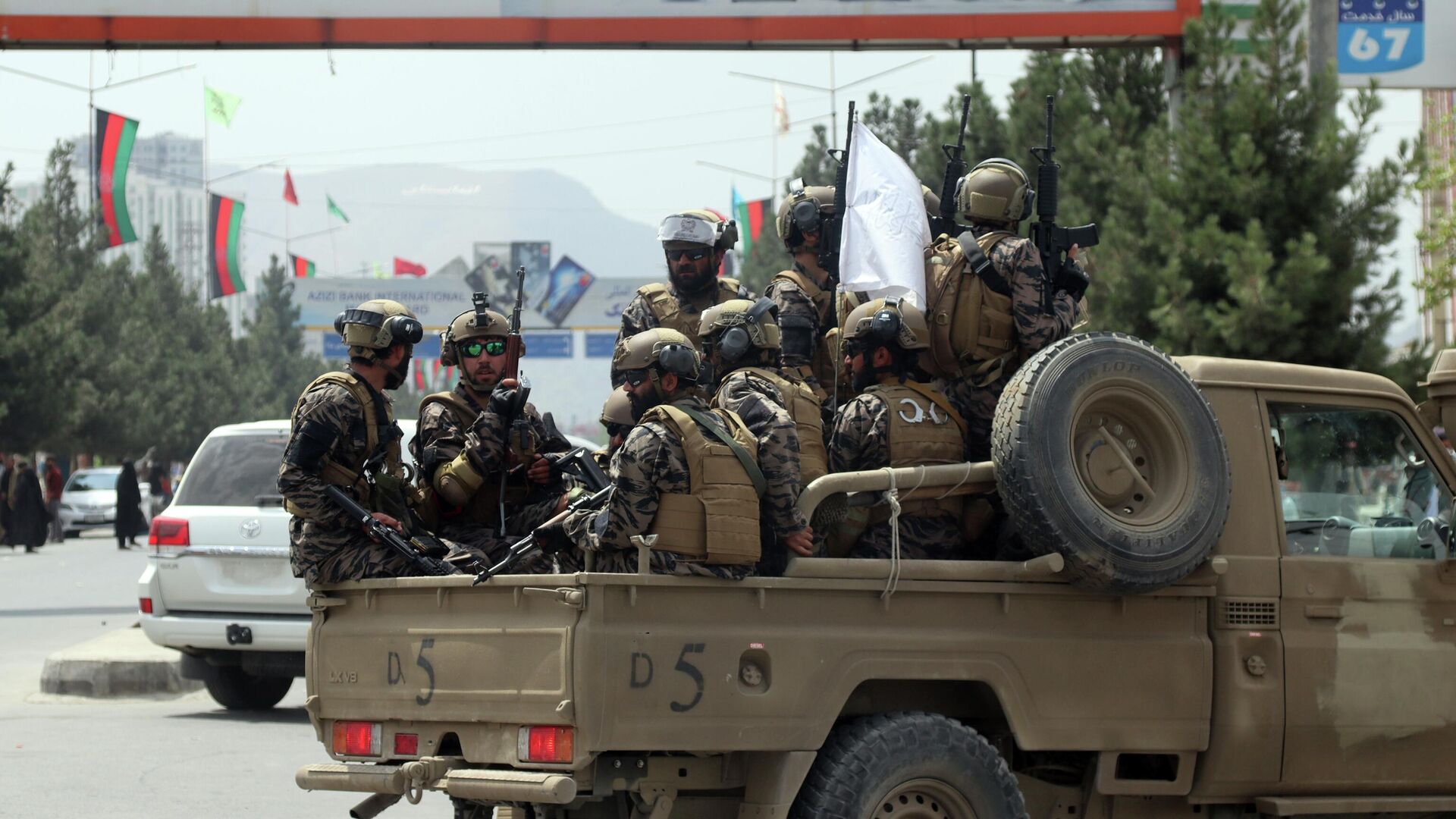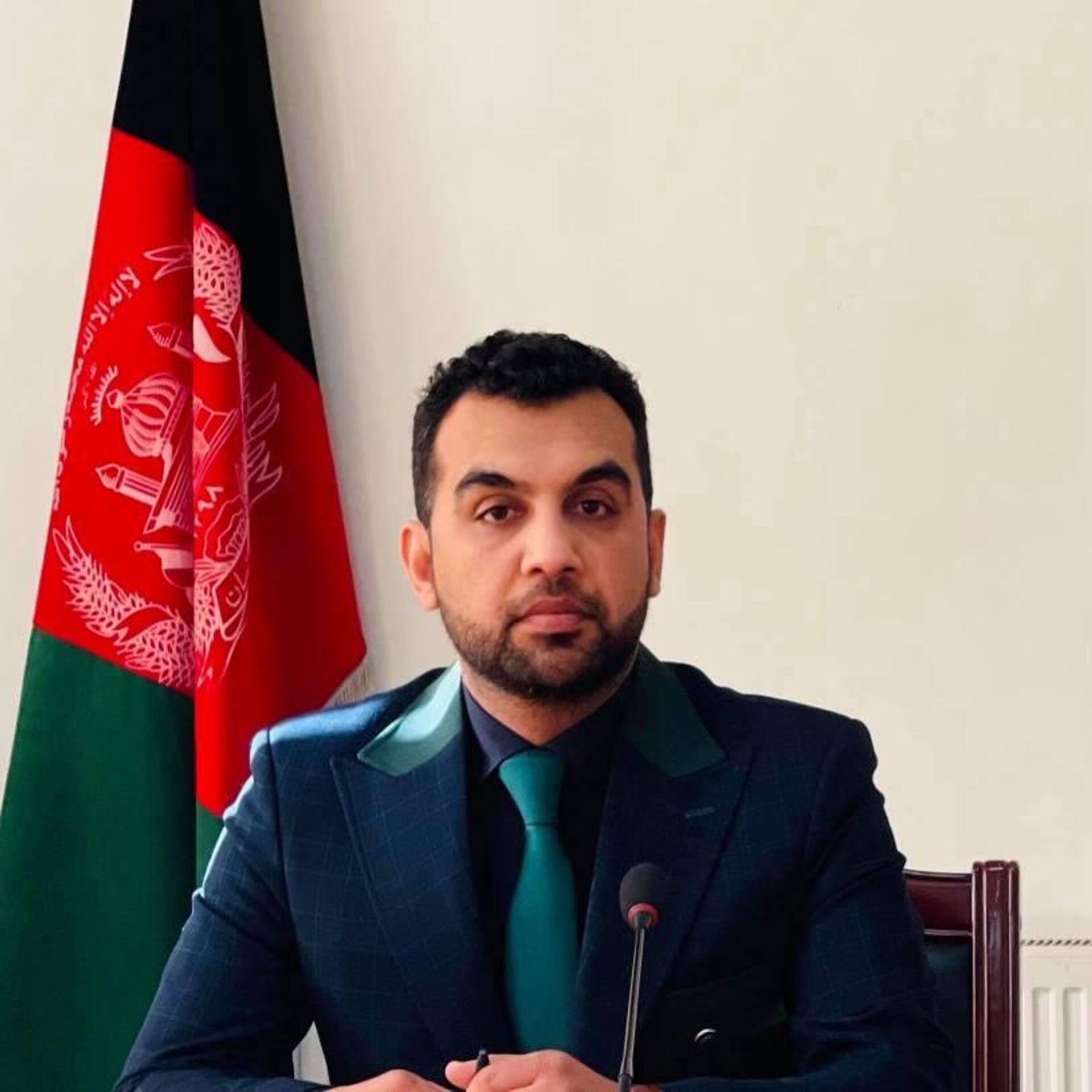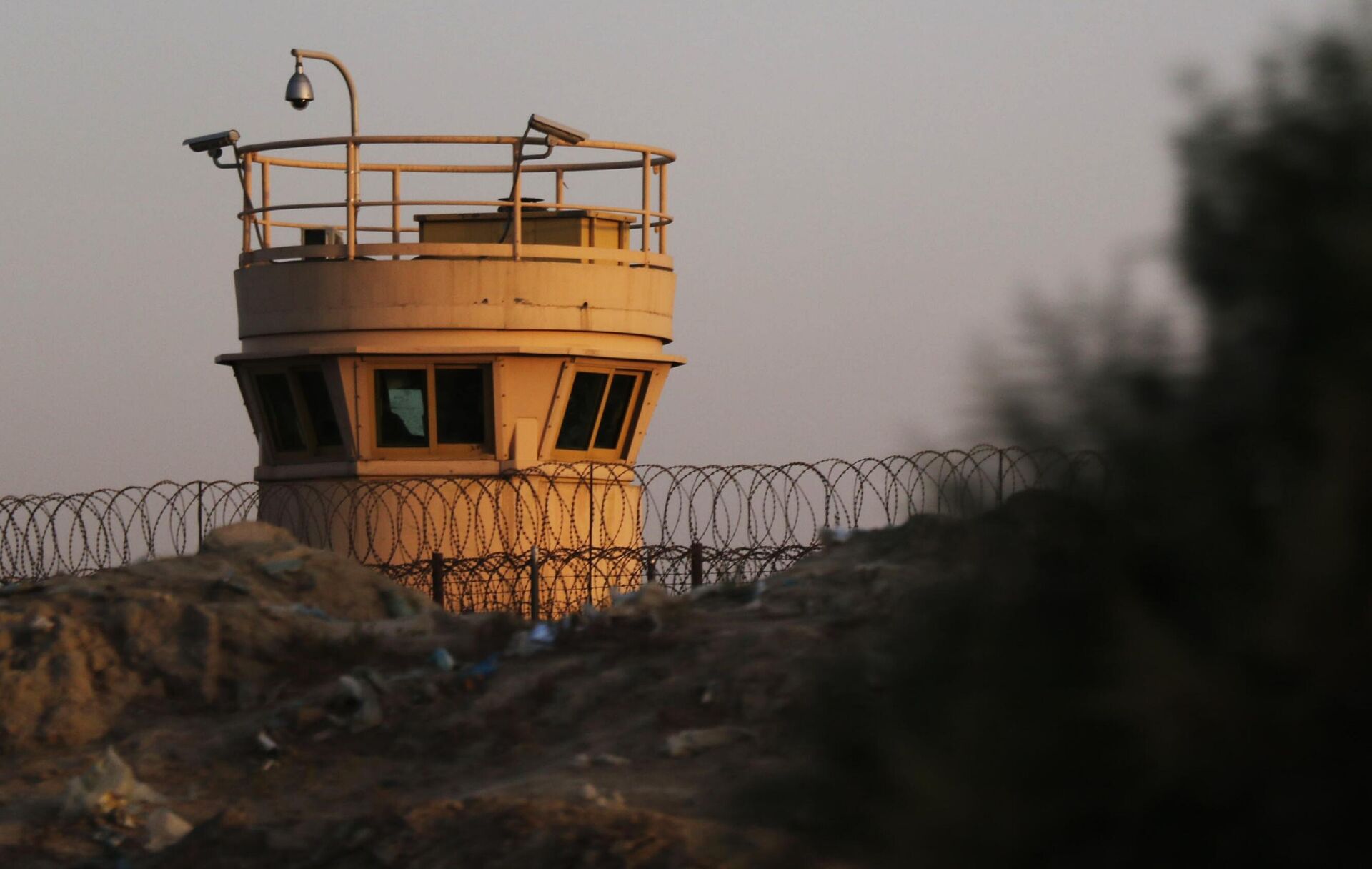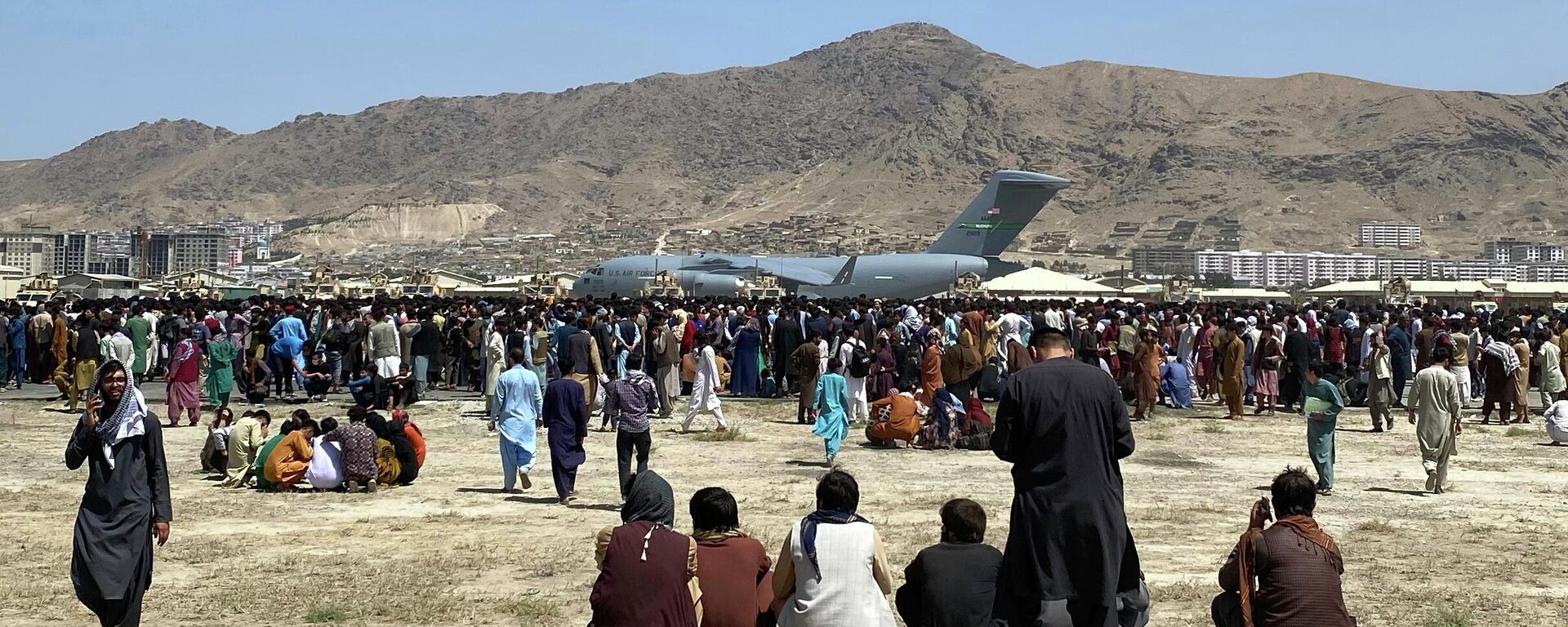Afghan Refugee in US Says Nobody Was Prepared for Taliban Takeover
21:07 GMT 14.08.2023 (Updated: 21:08 GMT 14.08.2023)

© AP Photo / Khwaja Tawfiq Sediqi
Subscribe
WASHINGTON (Sputnik) - Afghan refugee and former official, Ajmal Hussainkhail, told Sputnik on the second anniversary of the Taliban* takeover that people were completely taken off guard by the 2021 development and shared his memories of his nine days in Kabul before escaping to the United States.
The Taliban regained control of Kabul on August 15, 2021, two decades after being ousted by US-led forces in the wake of the September 11 attacks. The development accelerated the US troop withdrawal, which began in April and was completed in late August of that year.
The militant group's return triggered economic disarray and food shortages that have pushed the country to the brink of a humanitarian crisis. Thousands of Afghans have fled the country fearful of the Taliban amid widespread violations of human rights as women and girls are said to be deprived of their freedoms.
"We were not prepared for that. We were not informed that the Taliban will take over Afghanistan," Hussainkhail said. "We didn't think that it would happen."
No Way Out
Hussainkhail, 31, a former director of revenue collection at the transport ministry and an owner of his own suit brand, came to the United States two years ago and is still trying to digest what happened in those days.
Hussainkhail still remembers the day that forever changed the lives of millions of people in Afghanistan. He and his colleagues had gathered at the ministry as they always did on Wednesdays and Sundays, to send money they had collected from tours to the Transport Ministry account at Afghanistan's Central Bank.
"That day, 12 members of the Taliban came to my office and asked what my job title was. I said, 'I'm director of revenue collection,' and they inquired why I had not escaped from the office as the others did," Hussainkhail recalled, adding that he immediately pointed out to the Taliban that both he and them were Afghans. "They told me that they needed cars and as they were with the guns, I said, 'Every car that you need, you can take it.'"

Ajmal Hussainkhail, an Afghan national who previously served as the director of revenue collection at Afghanistan's Transport Ministry prior to the Taliban's 2021 takeover.
© Courtesy of Ajmal Hussainkhail
As Hussainkhail agreed to give them the vehicles, the Taliban members promised not to take his car, and he went home. Being overwhelmed with thoughts and emotions, he fell asleep in the middle of the afternoon, and woke up the next morning to more than 100 missed calls and text messages from his wife’s sister from Germany.
When he called her back, she started anxiously telling him to go to the airport and all people were already there trying to escape.
"I woke up my wife and we went to the Hamid Karzai International Airport. When we got there - it is 20 minutes away from my home - there was a huge crowd of the people and the taxi drivers," he said. "The taxi drivers were joking saying 'taxi to US, taxi to Canada.' They were laughing."
The Taliban took control of all gates of the airport and there was no way to go inside. So, Hussainkhail said, they turned around and came back home at midnight. On the way home, his car was stopped at several checkpoints as Taliban looked for guns.
Over the ensuing days, he rarely went outside. Although he did not close down the clothing brand store, no customers ever came to buy suits. Meanwhile, the ministry remained closed with only security guards on site.
"Those days, many places were closed and pricing was too high. I gave some money to workers who were in charge of the door of the ministry," he said.
The Escape
About nine days later, Hussainkhail suddenly received a phone call from his brother-in-law, who is an American citizen and worked as a translator for the US government.
"He said 'I'm so sorry. When I was in Afghanistan I couldn't help you, but if you... go to the airport, the soldiers will definitely help you, because you worked with the US Embassy,'" Hussainkhail recollected.
His father soon drove them to the airport and once they got out of the car and approached the crowd waiting to get inside the airport, the Taliban hit Hussainkhail, as they were hitting everyone.
"A five-minute walk from the entrance, but we spent 30 hours to get to the gate of the airport," he remembered.

A general view shows a control tower at Hamid Karzai International Airport in Kabul, Afghanistan.
© Sputnik / Stringer
/ When asked for documents at a fourth checkpoint, he showed the officer the contract he had with the US embassy. The officer said he did not care about Afghan documents and told Hussainkhail to leave the area.
Then, suddenly, the officer instructed him to wait. The US official then noticed Hussainkhail had a certificate from USAID in his folder from a financial management course he took. "[The official] said that is my US visa," Hussainkhail said. "They let me in."
Once inside, Hussainkhail said US soldiers gave them food and water.
"Then, half an hour later the aircraft came and we left Afghanistan," he said. "That was the US Army Force plane with more than 400 people. No seats, people were just sitting in the middle of the airplane."
From Afghanistan, they had a four-hour flight to Kuwait where they were sent to a US military base for 10 days before flying to Washington, DC.
Life Today
The family now live in Alexandria, Virginia, where Hussainkhail works as an Uber driver, while his wife is looking for a job as a midwife.
"I came here with just one shirt. We didn't have anything. We bought a car… everything is on credit," he shared. "We struggle every month to make our payments on time. It's very hard."
Hussainkhail said he needs to pay for both his family in the US and his family back in Afghanistan, including his sister who is fighting cancer.
And every month, because medical care in Afghanistan is not as high quality, his sister has to go to Pakistan, he explained. "They have to pay a lot of money to the cops in order to cross the border, and also to the Taliban members and the Pakistani soldiers to let them go to Pakistan for treatment."
While the memories of the chaos in his country are still fresh, Hussainkhail feels like he is lucky to be where he is now and dreams about bringing his parents and sister to the United States.
He also dreams of reopening his clothing brand store to make suits.
* Taliban is under UN sanctions for terrorist activities


